If you meet a Belarusian woman that seems a bit stressed out, it might be because she’s getting married this year. Sound weird? Well then, you must not know about Belarusian weddings! You see, from the moment two Belarusian people make the decision to get married the excitement quickly fades into total stress… but over the course of an entire year!
While in many countries, especially in the Netherlands, a wedding means a quick official ceremony followed by a quiet celebration (slightly boring), a Belarusian wedding could not be more different! Belarusian weddings are very special events packed full of traditions (some a bit crazier than others), and involve a lot people (not just relatives), and a number of different ceremonies with feasts of food and wine. It is no accident that in Belarusian a wedding is called “vyaselle”, literally translated as merriment.
Because we are so amazed by all the wedding traditions and feel slightly sorry for Belarusian newly engaged couples (mostly the bride) who have to arrange so much, we have made a ‘What happens after she says YES’ list, to highlight some of the more extraordinary traditions and possibly inspire others for their own weddings.
What happens after she says YES list:
Everything starts once the bride says YES, as she not only says yes to her marriage, but also agrees to everything that comes with the wedding rituals and traditions. Possibly one of the more frustrating things to organise and the first on our list is THE DATE. Why frustrating? Well you see Belarusians are quite superstitious and there are a number of days during the year seen to be either bad luck or not good traditionally speaking. For example, it is not wise to set the wedding date during Christian fasting periods, or on the eve of major church holidays. The entire month of May is a bit taboo (marry in May, ruin the day) and definitely not in a leap year. Luckily there are 99 days left in a calendar year that are suitable.
One of our favourite traditions takes place just before the start of the ceremony and is known as the Buy Out. A modern spin on the traditional dowry. The groom comes to the bride’s house accompanied by his groomsmen and he must undergo various challenges, showcasing his strength and intelligence (the challenges are usually prepared and organized by the bridesmaids who decide whether it’s payback time or not). If the groom fails any of these challenges, he must pay with money, chocolate, or alcohol. In the end, he usually gets the bride.
After the Buy Out the couple leave in separate cars accompanied by family and some close friends to the registry office to officially marry. The registry is usually not the cheeriest part of the wedding. Imagine Mendelssohn’s Wedding March playing in the background, while your family and friends watch you exchange vows in front of the antiquated registrar with the well trained voice who reads a ‘heartfelt’ speech. After the ceremony, the newlyweds leave in one car to their reception.
Once married, it’s time to seriously celebrate! Traditionally, the reception would take place at the groom’s house which has now been replaced by a banquet hall or a restaurant. Upon arrival, the newlyweds are greeted by their parents who say: ‘God grant you advise and love’. Each Father gives them a blessing with an icon, and the mothers - with bread and salt. The bread loaf is another tradition in and of itself. The newlyweds each snap off a piece and compare whose portion is bigger. The one with the bigger piece is then meant to be the head of the household.
Another fun tradition during the reception is the Kissing tradition. When glasses are raised, guests start chanting ‘GORKO’ (which means 'bitter') and ask the newlyweds to ‘sweeten it’, by kissing!
During the course of the evening, the groom must pay close attention to his wife’s whereabouts and her shoes because chances are she or them will be ‘stolen’ by partygoers. Often people will try and distract the couple while someone climbs under the tables. If they are successful, the maid of honour or best man must drink champagne out of the bride’s shoe to earn it back!
To add even more merriment to the evening, Belarusian weddings are packed full of games and contests. Weddinggoers have a love/hate relationship with these contests. You’re either ‘where can I hide’ or ‘please poor me some more’. We must admit that the games have a certain level of entertainment at least for those watching and not participating. The games include anything from guessing how many sweets are on your chair with your butt or, who can wrap their partner in toilet paper faster, to who can dance the longest with an apple stuck between their bodies.
However, don’t be scared if you are invited to a Belarusian wedding. It’s becoming more popular in Belarus to organise weddings in a Western European style. But, even at these weddings you will most likely encounter some sort of Pagan/Christian undertone/traditions. Maybe, if you’re lucky, you will get a chance to see a real Belarusian wedding… hopefully you’re the type who likes to wrap themselves in toilet paper, and if not you can always play the boring tourist card.
Here are some tips just in case you are invited to a Belarusian wedding:
- If you cannot come, it is better to call the bride- or groom-to-be in advance to personally explain why you will not be there or send them a letter.
- What to give as a present? Well if you want to save yourself time it is customary to give money ($50-100), or you may ask the couple if they have a wish list.
- Look for a sign from the Master of Ceremonies when to give the present (or money): there is usually a time specially dedicated to this during the wedding.
- Try to engage in the wedding activities and games as much as you can, even if you are not a big fan — you don't want to seem rude (but no one will judge you if you decide to tie your shoe or drop something on the floor and duck under the table when the MC is choosing victims for the next game).
- Have some petty cash on you for the contests — some of them involve bargaining or lotteries, so it might come in handy.
- Belarusian weddings often involve a lot of drinking — you will have to raise your glass many times, so try to monitor your consumption, or someone will have to carry you out the banquet hall, making this special day forgettable.
- If you are asked to make a toast, try to oblige, but do not make it too long — no one likes long speeches (especially when you have to sit through several dozens of them over the course of a few hours).
- Do not engage in heated discussions nor get involved with those started nearby — by the end of a long day of dancing, eating, and drinking, atmosphere in the room might get quite tense and even 'explosive'. Best to excuse yourself and join the fun elsewhere.
While in many countries, especially in the Netherlands, a wedding means a quick official ceremony followed by a quiet celebration (slightly boring), a Belarusian wedding could not be more different! Belarusian weddings are very special events packed full of traditions (some a bit crazier than others), and involve a lot people (not just relatives), and a number of different ceremonies with feasts of food and wine. It is no accident that in Belarusian a wedding is called “vyaselle”, literally translated as merriment.
Because we are so amazed by all the wedding traditions and feel slightly sorry for Belarusian newly engaged couples (mostly the bride) who have to arrange so much, we have made a ‘What happens after she says YES’ list, to highlight some of the more extraordinary traditions and possibly inspire others for their own weddings.
What happens after she says YES list:
Everything starts once the bride says YES, as she not only says yes to her marriage, but also agrees to everything that comes with the wedding rituals and traditions. Possibly one of the more frustrating things to organise and the first on our list is THE DATE. Why frustrating? Well you see Belarusians are quite superstitious and there are a number of days during the year seen to be either bad luck or not good traditionally speaking. For example, it is not wise to set the wedding date during Christian fasting periods, or on the eve of major church holidays. The entire month of May is a bit taboo (marry in May, ruin the day) and definitely not in a leap year. Luckily there are 99 days left in a calendar year that are suitable.
One of our favourite traditions takes place just before the start of the ceremony and is known as the Buy Out. A modern spin on the traditional dowry. The groom comes to the bride’s house accompanied by his groomsmen and he must undergo various challenges, showcasing his strength and intelligence (the challenges are usually prepared and organized by the bridesmaids who decide whether it’s payback time or not). If the groom fails any of these challenges, he must pay with money, chocolate, or alcohol. In the end, he usually gets the bride.
After the Buy Out the couple leave in separate cars accompanied by family and some close friends to the registry office to officially marry. The registry is usually not the cheeriest part of the wedding. Imagine Mendelssohn’s Wedding March playing in the background, while your family and friends watch you exchange vows in front of the antiquated registrar with the well trained voice who reads a ‘heartfelt’ speech. After the ceremony, the newlyweds leave in one car to their reception.
Once married, it’s time to seriously celebrate! Traditionally, the reception would take place at the groom’s house which has now been replaced by a banquet hall or a restaurant. Upon arrival, the newlyweds are greeted by their parents who say: ‘God grant you advise and love’. Each Father gives them a blessing with an icon, and the mothers - with bread and salt. The bread loaf is another tradition in and of itself. The newlyweds each snap off a piece and compare whose portion is bigger. The one with the bigger piece is then meant to be the head of the household.
Another fun tradition during the reception is the Kissing tradition. When glasses are raised, guests start chanting ‘GORKO’ (which means 'bitter') and ask the newlyweds to ‘sweeten it’, by kissing!
During the course of the evening, the groom must pay close attention to his wife’s whereabouts and her shoes because chances are she or them will be ‘stolen’ by partygoers. Often people will try and distract the couple while someone climbs under the tables. If they are successful, the maid of honour or best man must drink champagne out of the bride’s shoe to earn it back!
To add even more merriment to the evening, Belarusian weddings are packed full of games and contests. Weddinggoers have a love/hate relationship with these contests. You’re either ‘where can I hide’ or ‘please poor me some more’. We must admit that the games have a certain level of entertainment at least for those watching and not participating. The games include anything from guessing how many sweets are on your chair with your butt or, who can wrap their partner in toilet paper faster, to who can dance the longest with an apple stuck between their bodies.
However, don’t be scared if you are invited to a Belarusian wedding. It’s becoming more popular in Belarus to organise weddings in a Western European style. But, even at these weddings you will most likely encounter some sort of Pagan/Christian undertone/traditions. Maybe, if you’re lucky, you will get a chance to see a real Belarusian wedding… hopefully you’re the type who likes to wrap themselves in toilet paper, and if not you can always play the boring tourist card.
Here are some tips just in case you are invited to a Belarusian wedding:
- If you cannot come, it is better to call the bride- or groom-to-be in advance to personally explain why you will not be there or send them a letter.
- What to give as a present? Well if you want to save yourself time it is customary to give money ($50-100), or you may ask the couple if they have a wish list.
- Look for a sign from the Master of Ceremonies when to give the present (or money): there is usually a time specially dedicated to this during the wedding.
- Try to engage in the wedding activities and games as much as you can, even if you are not a big fan — you don't want to seem rude (but no one will judge you if you decide to tie your shoe or drop something on the floor and duck under the table when the MC is choosing victims for the next game).
- Have some petty cash on you for the contests — some of them involve bargaining or lotteries, so it might come in handy.
- Belarusian weddings often involve a lot of drinking — you will have to raise your glass many times, so try to monitor your consumption, or someone will have to carry you out the banquet hall, making this special day forgettable.
- If you are asked to make a toast, try to oblige, but do not make it too long — no one likes long speeches (especially when you have to sit through several dozens of them over the course of a few hours).
- Do not engage in heated discussions nor get involved with those started nearby — by the end of a long day of dancing, eating, and drinking, atmosphere in the room might get quite tense and even 'explosive'. Best to excuse yourself and join the fun elsewhere.




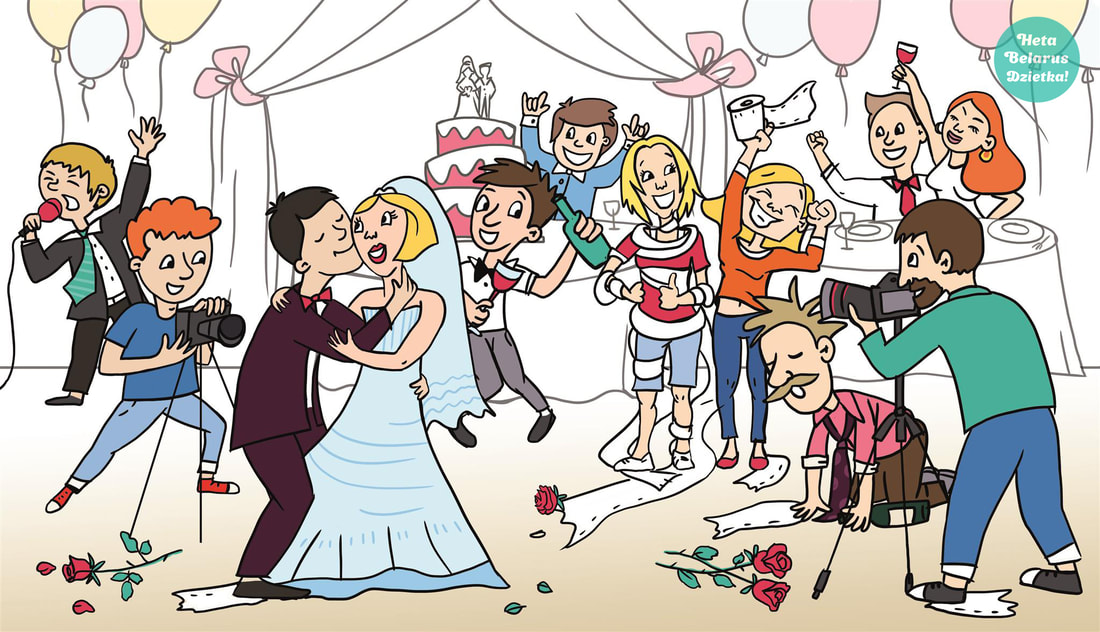
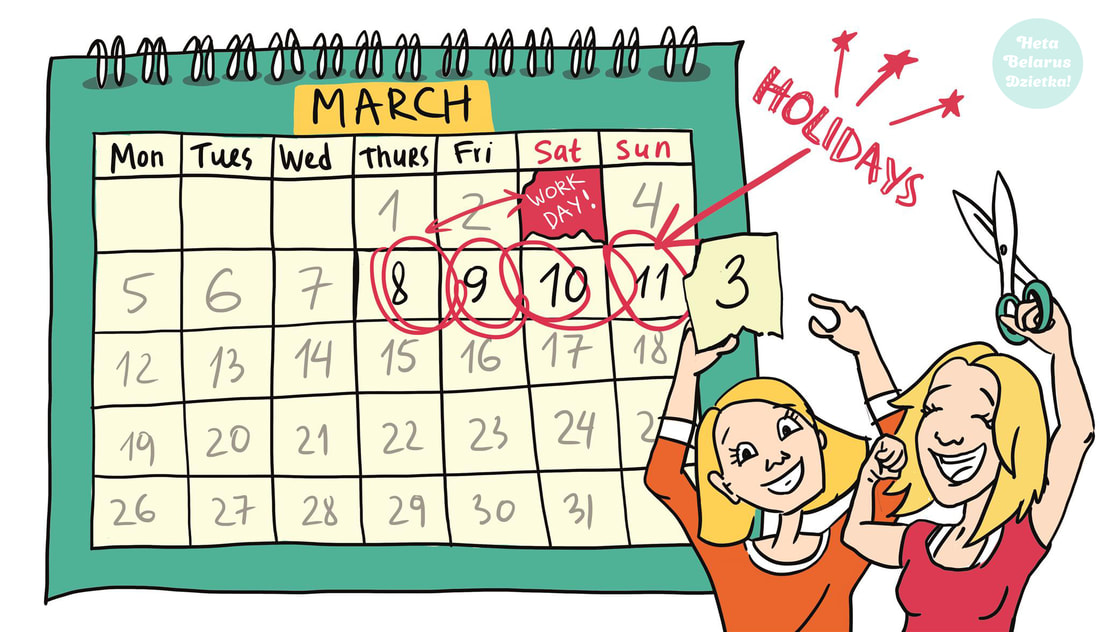
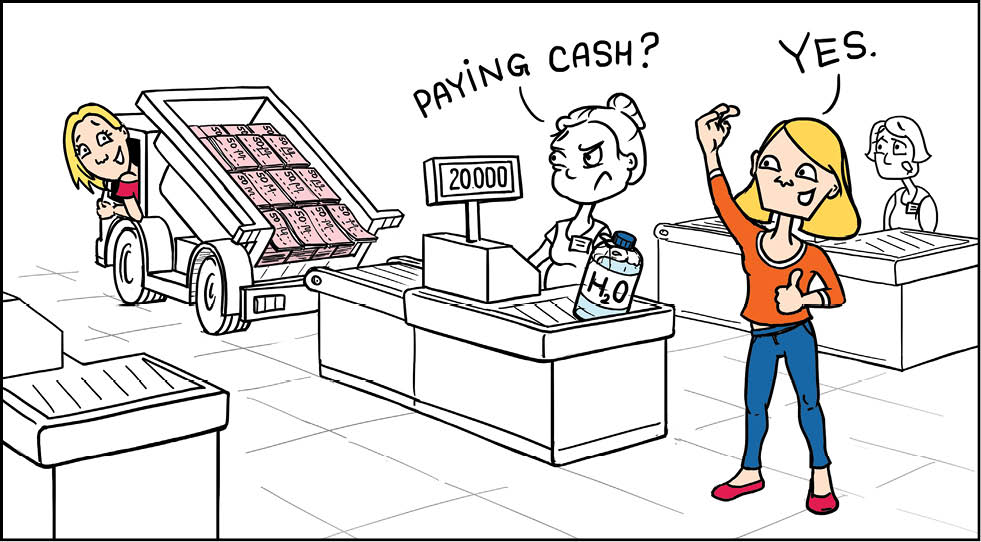
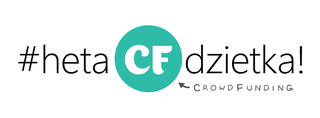
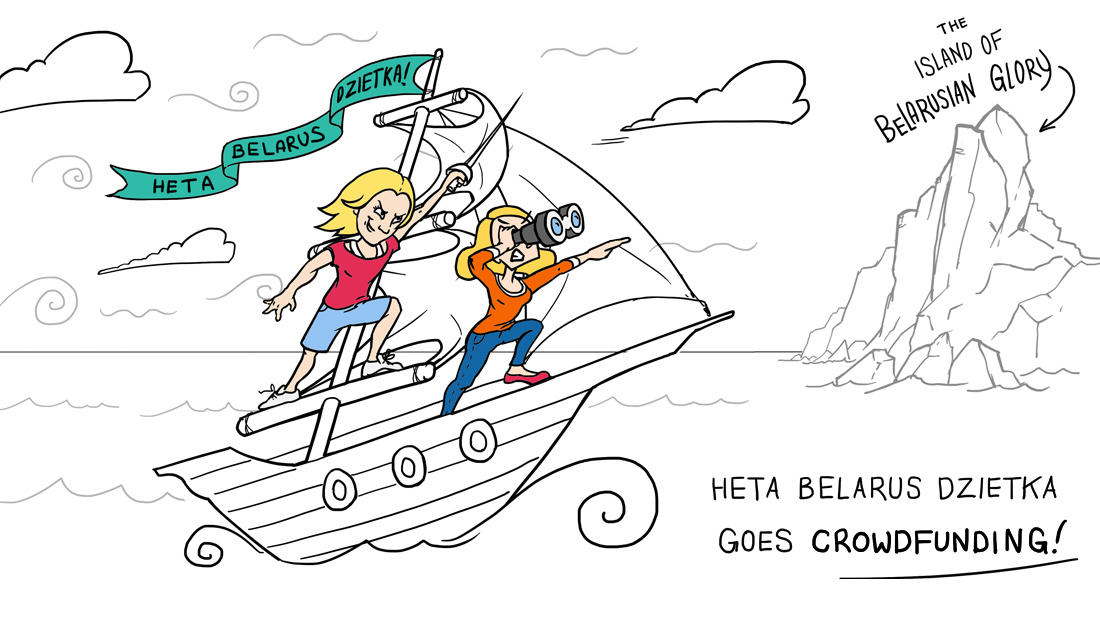
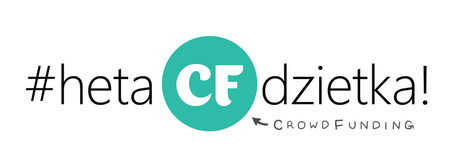
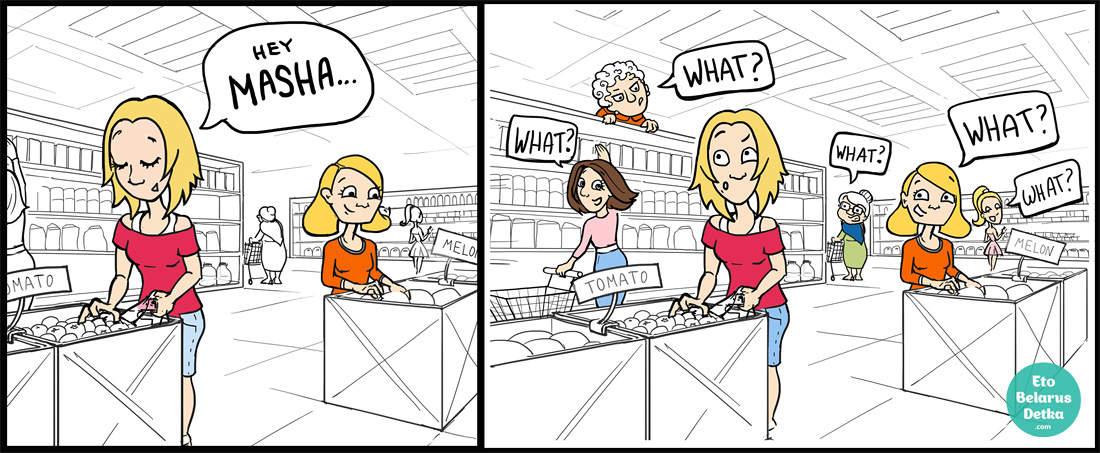
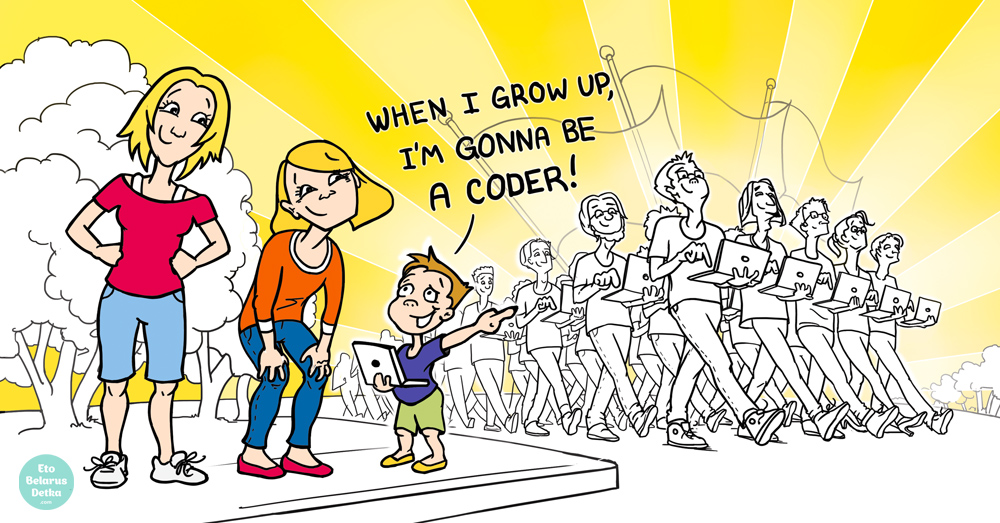
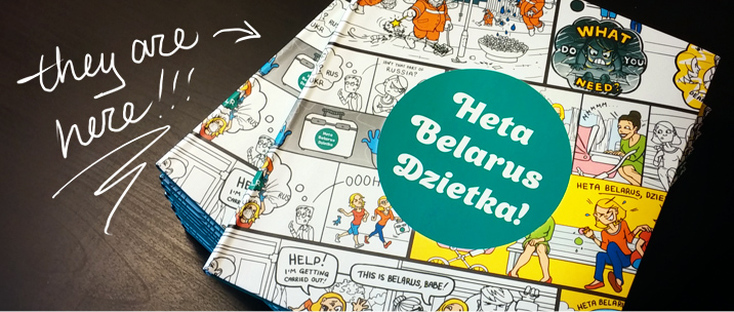
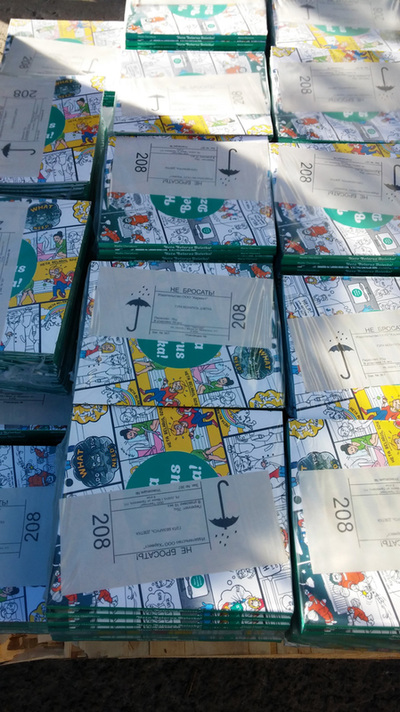
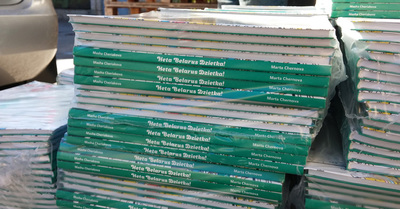
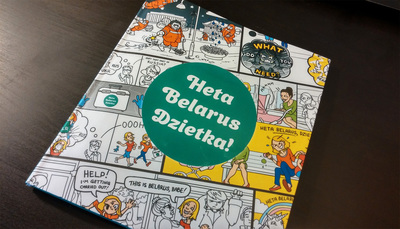
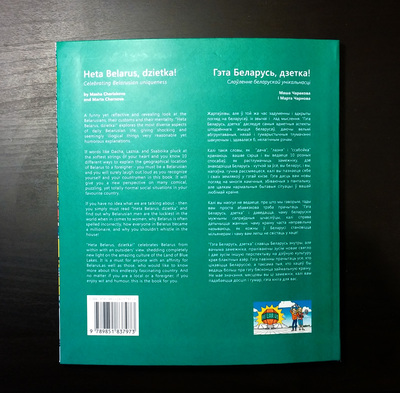
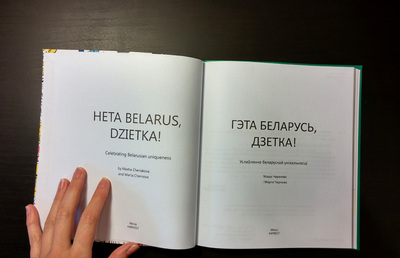
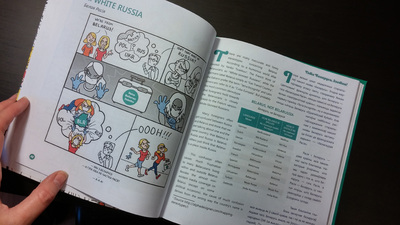
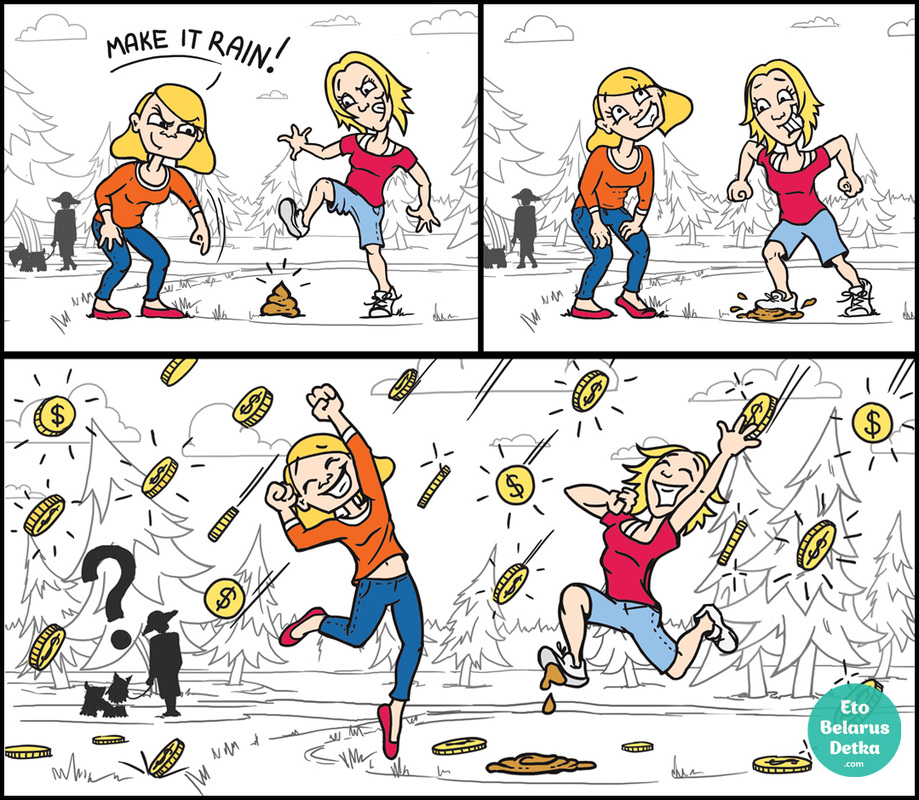
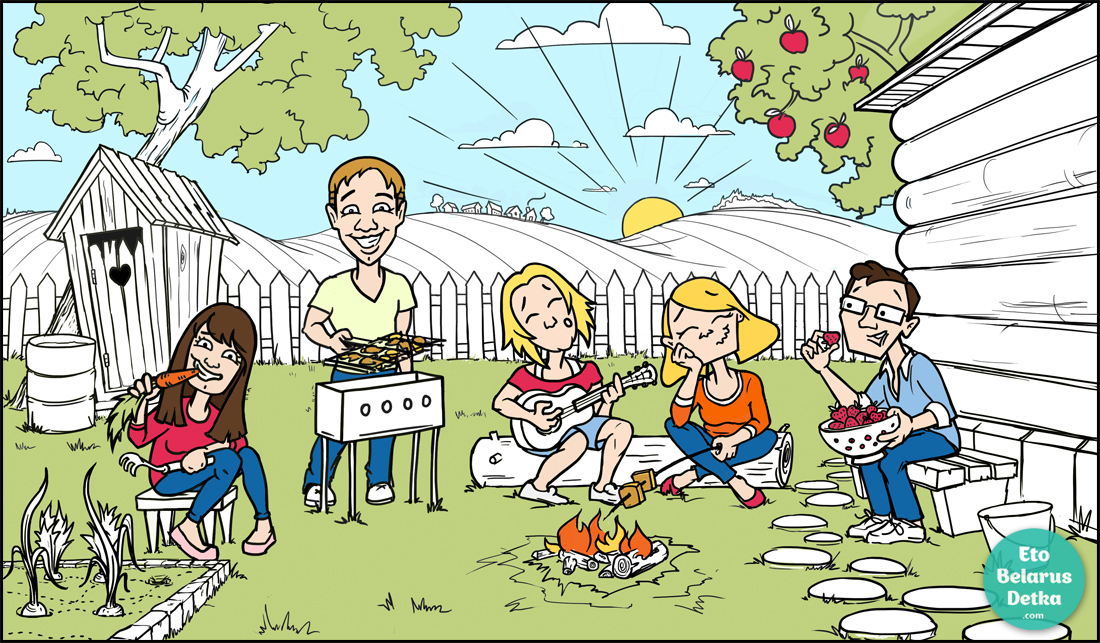
 RSS Feed
RSS Feed
